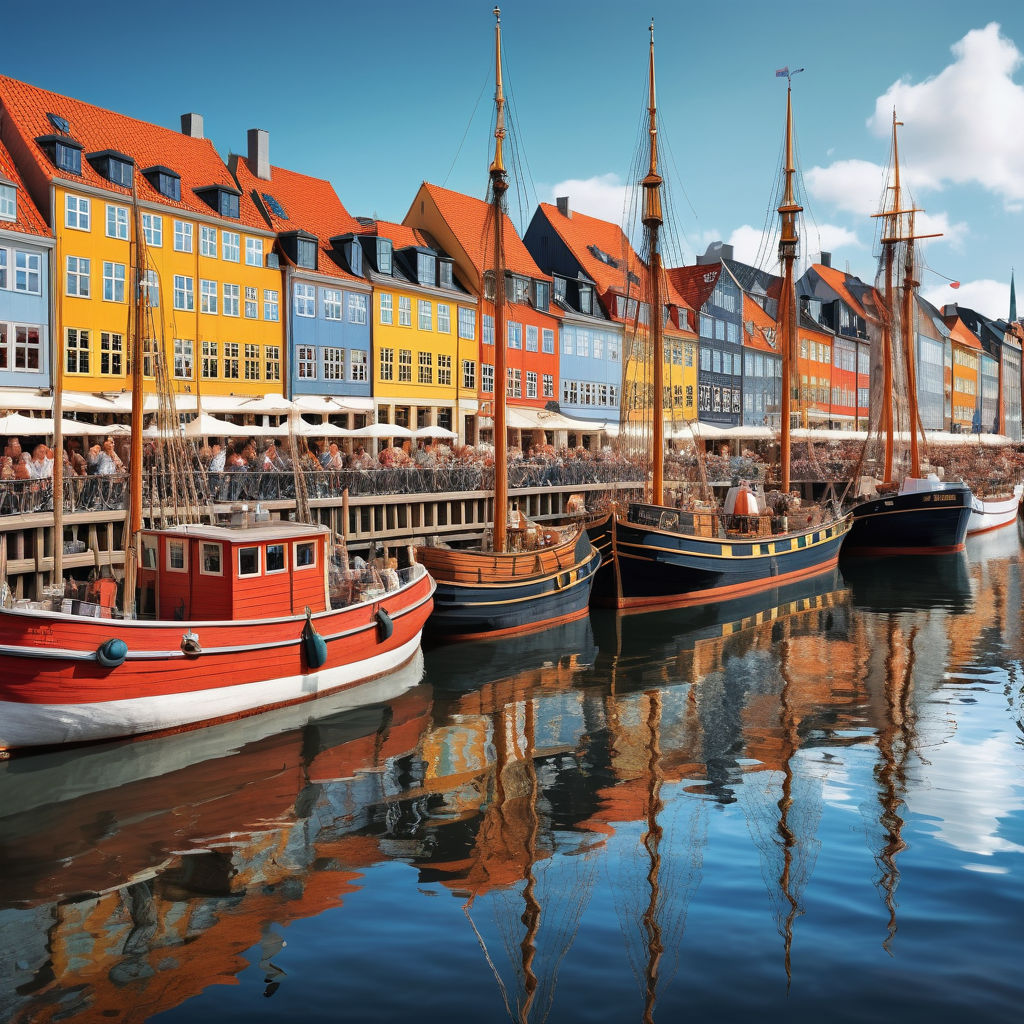Discover Denmark: A Blend of Viking Heritage and Modern Design
Explore Denmark’s Cultural Richness and Cross-cultural Dynamics

Introduction to Denmark
Denmark, a Scandinavian country in Northern Europe, is known for its rich history, stunning landscapes, and high quality of life. It is bordered by Germany to the south, and it's connected to Sweden via the Øresund Bridge to the east. Denmark comprises the Jutland Peninsula and an archipelago of 443 named islands, of which Zealand, Funen, and Bornholm are the largest. The capital city, Copenhagen, is a vibrant cultural and economic hub. Other major cities include Aarhus, Aalborg, and Odense. Denmark's cultural heritage is a blend of ancient Viking traditions and modern design aesthetics. The country is renowned for its contributions to art, literature, and philosophy, with figures like Hans Christian Andersen and Søren Kierkegaard. Danish design, characterized by simplicity and functionality, is celebrated globally. Festivals, music, and theater play an essential role in Danish culture, with events such as the Roskilde Festival attracting international attention.
Cross-national and Cross-cultural Understanding
Danes are generally open and receptive to other cultures, which is partly due to Denmark’s history of trade and exploration. The country’s education system emphasizes global awareness and cross-cultural understanding from an early age. Programs like the Erasmus+ initiative facilitate student exchanges, promoting cultural exchange and understanding among young Danes and their peers worldwide. Denmark participates in numerous international partnerships and cultural exchanges. Institutions like the Danish Cultural Institute promote Danish culture abroad and encourage cultural collaboration. The country’s involvement in international organizations, such as the United Nations and the European Union, also fosters cross-cultural dialogue and cooperation.
Interactions and Social Dynamics
Interactions between Danes and foreigners are typically positive, marked by mutual respect and curiosity. Danes are known for their direct but polite communication style, which can sometimes be perceived as reserved by those from more expressive cultures. Social interactions are often informal, and there is a strong emphasis on equality and mutual respect. Language plays a significant role in facilitating these interactions. While Danish is the official language, English is widely spoken and understood, particularly among the younger population. Many Danes are also proficient in other languages such as German and French, which further aids cross-cultural communication. Cultural norms in Denmark emphasize individualism balanced with community welfare. Punctuality, modesty, and a strong sense of personal responsibility are valued traits. Social gatherings often revolve around shared meals and hygge, a concept that denotes a sense of coziness and contentment derived from enjoying simple pleasures with loved ones.
Views on Dating and Relationships
Dating and relationships in Denmark are approached with a modern and liberal mindset. Danes typically view dating with foreigners positively, appreciating the diversity and enrichment it brings. There is an emphasis on equality and mutual respect in relationships, and gender roles are generally flexible. Cultural expectations in Danish dating are quite progressive, with a focus on honesty and direct communication. While casual dating is common, many Danes value deeper connections and long-term commitments. The dating culture is influenced by the country's high level of gender equality, and it is common for partners to share responsibilities equally.
Marriage and Family
Marrying a foreigner in Denmark involves navigating both legal and social considerations. The legal process for marriage is relatively straightforward, and Denmark is known for its accommodating marriage laws, making it a popular destination for international couples. Socially, cross-cultural marriages are generally accepted and even celebrated in Denmark. Families may initially have concerns about cultural differences, but these are often outweighed by the broader acceptance of diversity and inclusion within Danish society. Trends indicate an increase in cross-cultural marriages, reflecting Denmark's growing international connections. Family dynamics in Danish culture emphasize equality, with both partners typically sharing domestic responsibilities. Parental leave policies are progressive, supporting both parents in raising children. This egalitarian approach extends to cross-cultural families, where cultural integration is encouraged and supported.